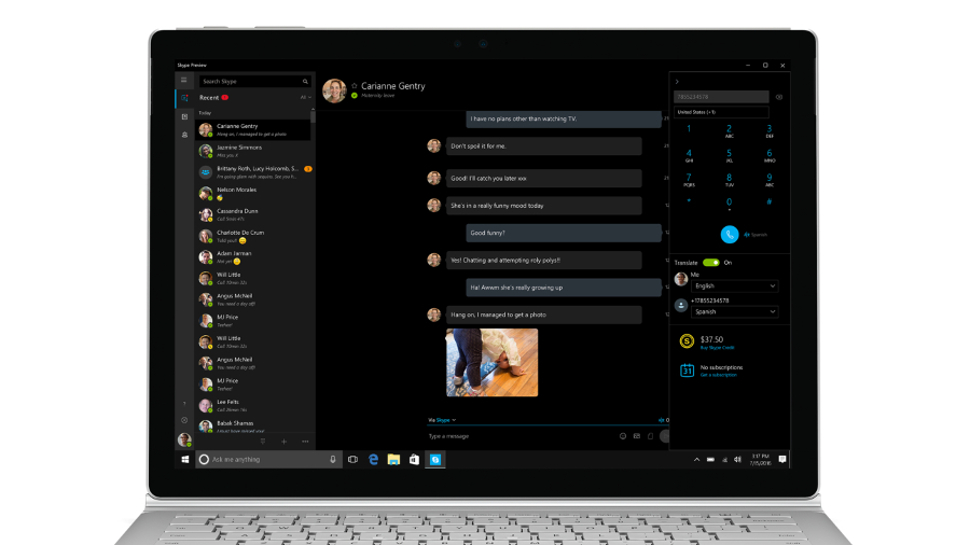Skype’s new read receipts let you know that your message was received
Feature is currently in testing, and can be turned off if you wish

It looks like a major change is coming to the Skype app, with Microsoft introducing read receipts to the preview version of the software.
You’ll likely be familiar with read receipts from using other messaging platforms. Essentially, what happens is that the sender will be notified when the person who receives their message has read it. So, even if there’s no response (at least initially), you know that the message has got through.
This is something of a double-edged sword, because when you read a message, you’re aware that the sender knows this, and so you may then feel some pressure to reply in perhaps a swifter manner than you might otherwise have done.

Hiding away
With that in mind, Microsoft has also made it possible to disable this feature under settings, and it will also be disabled if you’re in Invisible mode. However, if the feature is turned off, you won’t be able to see receipts returned from folks you’re sending messages to.
Read receipts are now live in Skype preview build 8.26.76, across desktop (Windows, Linux and Mac) and mobile (iOS and Android) clients, and so should (hopefully) soon be making their way to the release versions of these Skype apps, barring any major disaster in testing.
You’ll know someone has read a message because their avatar will pop up beneath it in a Skype chat. Incidentally, read receipts are available in one-to-one conversations, and also group chats – although in the latter case, only if there are 20 or fewer participants.
Further note that at the moment, the feature is only live for Insiders testing Skype with the very latest preview build, so it won’t work when messaging those on different versions of the software.
Sign up for breaking news, reviews, opinion, top tech deals, and more.
- Check out our best laptops of 2018
Via Thurrott.com
Darren is a freelancer writing news and features for TechRadar (and occasionally T3) across a broad range of computing topics including CPUs, GPUs, various other hardware, VPNs, antivirus and more. He has written about tech for the best part of three decades, and writes books in his spare time (his debut novel - 'I Know What You Did Last Supper' - was published by Hachette UK in 2013).